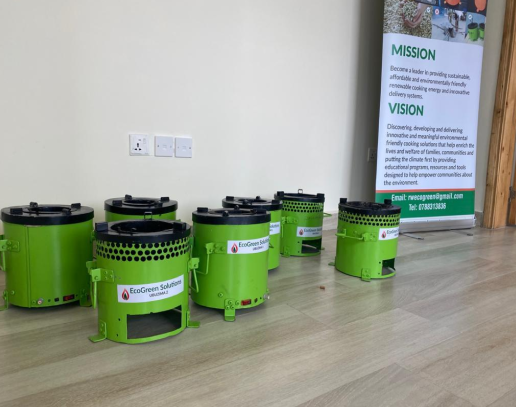Problems and Solutions
CRITICAL PROBLEM ANAYSIS
Rwanda faces a double challenge in improving access to modern energy cooking solutions: a high percentage of households that still use highly polluting three-stone and traditional stoves and a very low percentage of households that use clean fuels. The use of efficient cooking stoves, while existing at all consumption levels, remains limited at approximatively 13 percent of all households.
The ultimate objective should be to provide all households access to cooking solutions that are clean, efficient, convenient, affordable, safe, and available (Tiers 4 and 5), but in the interim improved biomass stoves could be an immediate solution to move households in Tier 0 to Tiers 1–3
The cooking stove sector is therefore characterized by the following challenges:
▪ High inefficiency in terms of fuel use, resulting in significant operating costs for rural and urban families, as presented above.
▪ Significant use of biomass, both for direct fuel use (firewood) and indirect use (charcoal), leading to increasing deforestation. Inefficient use of wood fuels contributes to massive deforestation. Rwanda experienced annual wood deficit of 870,000 tons (~21 percent of demand) in 2009 and expected a 2.1-million-ton deficit (36 percent of demand) in 2020. (ongoing research) ; 35 percent of households have issues sourcing fuel for cooking.
▪ Significant health issues due to household air pollution. Household air pollution is a leading environmental risk factor for health worldwide and the fourth leading risk factor for morbidity and mortality in Rwanda, due to people cooking using polluting open fires or simple stoves fueled by kerosene, biomass (wood, animal dung and crop waste) and charcoal. Illnesses attributable to household air pollution from inefficient cooking practices using polluting stoves paired with solid fuels and kerosene is linked with 4.3 million premature deaths worldwide and 7,400 annual deaths in Rwanda.
▪ Significant economic losses due to cooking. About 76 percent of households spend on average 7 hours acquiring fuel, either by collecting or purchasing it, and preparing the fuel for their stoves, with a disproportionate burden on households using firewood. 38 percent of households spend more than five minutes to prepare the stove for every meal. Women and girls disproportionately spend more time engaging in cooking-related activities and bear the burden of drudgery.
CURRENT SITUATION IN REFUGEE CAMPS- CASE OF KIGEME AND NYABIHEKE
The main challenges are the lack of clean cooking energy and efficient stoves suppliers close to refugee camps and the difficulty to change the population habits as refugees and host communities continue to use charcoal and firewood which most of the time is not sustainably produced.


Solution
Ecogreen solutions aims to produce, supply and distribute Affordable, efficient, safe clean cooking stoves and efficient fuel in a sustainable and profit making manner.
OUR IMPACT
We are supporting the government with its initiative to ban the use of charcoal and also keep protecting its population health as well as protecting the environment; – As we are protecting their lives though using clean cooking stoves, Rwandan households and Refugees are the first beneficiary and will enjoy the quality, affordable and efficiency clean cooking stoves and pellets


PAYMENT MODEL
PAY AS YOU GO, Cash in all accepted currency in Rwanda using alternative payment modes; momo codes MTN & AIRTEL, etc
ACCEPT payment in installment: in installment, subject the client to pay at least 40% the remaining to be paid within 6 months – and this will be applied on the stove only, pellets and gas refill are to be paid in cash.
